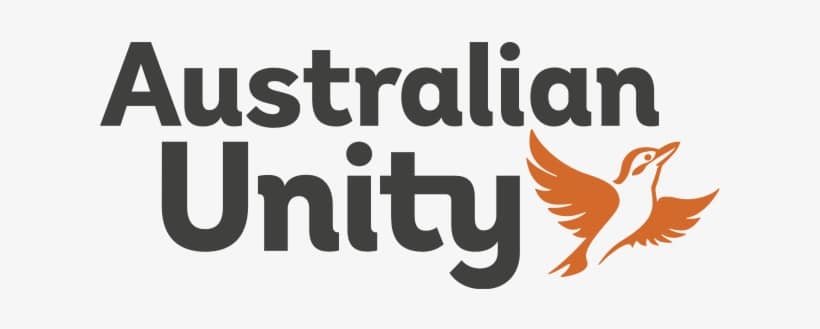Home > Health Insurance > Private Health Insurance For Tummy Tuck
Private Health Insurance For Tummy Tuck
Compare quotes for private health insurance that covers medically necessary tummy tucks through Savvy.
Author
Savvy Editorial TeamFact checked



We’ve partnered with Compare Club to bring you a range of health insurance policies to help you compare them side by side.
Considering a tummy tuck in Australia? While Medicare doesn’t cover tummy tucks unless they’re medically necessary, private health insurance may provide some coverage for the procedure as part of a hospital policy if your doctor considers the surgery is required on medical grounds.
You can compare health insurance policies and find out about the benefits of private health insurance for tummy tucks in Australia through Savvy. Discover what to look for in a policy and how to find the right health insurance coverage for your medically-necessary surgery. Get started with the comparison process through us today.
What type of health insurance covers tummy tucks in Australia?
Cosmetic surgery isn’t covered by private health insurance in Australia. This means if you want a tummy tuck (abdominoplasty) or a facelift for cosmetic reasons, your private health insurance won’t cover any of the costs associated with the surgery.
However, the Medicare Benefits Schedule does include item numbers for tummy tucks in certain situations, which means that Medicare may cover some of the costs of your surgery if a tummy tuck is deemed to be medically necessary. If this is the case, having private health insurance hospital cover can assist you with the cost of the surgery.
To be considered medically necessary and eligible for a tummy tuck partially financed through Medicare, patients must meet some or all of the following requirements:
- Loss of a minimum of five body mass index (BMI) points, with stable weight loss and reduction for at least six months
- Suffering from intertrigo (skin rubbing on skin) which has failed to be resolved after at least three months of other conservative treatments (such as using creams)
- Having excess redundant skin which interferes with normal life
- Suffering a separation or tear of abdominal muscles
- Other abdominal muscle injuries and tears
Tummy tucks which are considered medically necessary may be performed if you suffer from any of the following conditions:
- Separation of the large abdominal muscles following pregnancy (rectus diastasis)
- Multiple pregnancy disfigurement
- Excess skin and fat following radical weight loss
- Abdominal hernias
- Weight-lifting injuries resulting in stretched abdominal muscles
How can private health insurance assist with the cost of a tummy tuck?
Private health hospital cover can assist you with the costs of:
- private hospital admission costs and private room fees if applicable
- the expenses related to surgery such as theatre charges
- consultations with doctors, anaesthetists and other specialists in hospital
- in-patient tests such as CT scans, blood tests, and X-rays
- allied health services, including post-operative pain management
Hospital cover is available in four levels: basic, bronze, silver and gold. The level of insurance you'll require to cover part of your tummy tuck will generally be a gold policy, although some insurers may offer coverage under silver plus hospital insurance. It's important to carefully review the terms and conditions of your specific policy to determine the level of hospital cover required for coverage of a tummy tuck.
You can compare health insurance policies which may cover abdominoplasty through Savvy. All you need to do to get the process started is answer a few simple questions about the cover you're looking for and you can see the policies which fit your requirements from our panel of leading health insurance providers.
What should I look for in a private health insurance policy that covers tummy tucks?
If you're comparing private health insurance policies which cover abdominoplasty or tummy tucks, there are several things to look at to help you get the coverage you need:
- Cost – while it may be tempting to go for the cheapest hospital cover policy, make sure the policy you buy offers the cover you need for skin surgery which would include a medically-necessary tummy tuck
- Compare apples with apples – make sure you’re comparing policies with the same tier of cover, such as a silver policy with another silver policy
- Waiting periods – review the policy documents carefully to understand the waiting period which may apply, particularly if you're increasing your level of private health hospital cover or are having treatment for a pre-existing condition
- Excess level – you can choose between policies which have an excess ranging from zero up to $750. The higher the excess you choose, the less your monthly premiums are likely to be, but the more you’ll have to pay in out-of-pocket expenses when you're admitted to hospital for your surgery
- Co-payments – check if there are any co-payments required when you're admitted to hospital
- Claim limits – check and compare what limits may apply to the policy overall, and in any one particular financial year
Types of health insurance
This can help you pay for medical treatment if you need to be admitted to hospital. It can help cover the cost of your admission or accommodation and the fees charged by doctors, surgeons and anaesthetists. It can also cover other costs associated with a stay in a private hospital.
This helps cover the costs of health care treatments outside a hospital setting which aren’t covered by Medicare. This can include major and minor dental treatment, orthodontics, hearing aids, physiotherapy, glasses, contact lenses and podiatry (in most cases with annual limits).
This is a standard health insurance policy designed for a single person, rather than being tailored to cater to the needs of a couple or family. It may include hospital cover plus extras, or either of these types of insurance on their own, depending on what you're after for your health cover.
A family health insurance policy is designed for a family unit including dependent children who may reach up to 31 years of age with some insurers. It offers private health insurance suitable for the whole family and may include shared limits for all members included in your policy.
A health insurance policy aimed at seniors is designed to appeal to people who are in the second half of their life. These are often specific Silver Plus policies that offer the same cover as other health insurance policies, with the exception that pregnancy and childbirth cover may not be included.
Visitors who are in Australia on a temporary basis for travel, work or study may be able to take out Overseas Visitors Health Cover (OVHC). Many visas issued in Australia come with a requirement to take out this type of insurance, which covers visitors who may not be covered by Medicare.
Ambulance cover is generally available either packaged into your private health insurance or on its own as a separate policy or subscription. By having this protection, you could be covered for all eligible ambulance travel in Australia (subject to your insurer's terms and conditions).
The cheapest and most barebones form of private hospital insurance, this can include cover for rehab, in-hospital psychiatric services and palliative care. Having this policy will enable you to avoid paying the Medicare Levy Surcharge (MLS) and Lifetime Health Cover (LHC) loading.
Bronze hospital cover is a step up from basic insurance, including 18 further clinical categories such as ear, nose and throat, bone, joint and muscle, digestive system, joint reconstructions, gynaecology and chemotherapy, radiotherapy and immunotherapy for cancer.
Silver hospital cover is the second-most expensive type of policy and offers the second-most clinical categories. On top of what's offered by basic and bronze cover, it also includes heart and vascular system, lung and chest, blood, hearing device implantation and dental surgery.
The highest level of private hospital insurance available in Australia, gold policies can offer cover for pregnancy and birth, weight loss surgery, assisted reproductive services and insulin pumps on top of all the categories provided by silver, bronze and basic hospital insurance.
Why compare health insurance through Savvy?
100% free service
Our comparison tool doesn’t cost you a cent, allowing anyone to compare offers from trusted insurers around Australia for free.
Compare policies online in one place
You can consider the inclusions, premiums, benefits and other key factors easily with us, whether you’re at home or on the go.
Trusted insurers
Considering offers from trusted insurance providers can help give you peace of mind that you’re comparing high-quality policies.
Frequently asked questions about private health insurance for tummy tucks
Most private health insurance policies have a waiting period of 12 months for a tummy tuck. This is because they're generally considered a pre-existing condition, which come with required 12-month waiting periods.
The main difference between a full and partial abdominoplasty is the extent of the procedure. A full abdominoplasty, usually known as a tummy tuck, involves removing excess skin and fat from the entire abdomen, while a partial abdominoplasty, or mini tummy tuck, addresses only the lower part of the abdomen below the navel.
Yes – having private health insurance may assist you to avoid public hospital waiting lists for elective surgery, which can be two years or more in some states of Australia. The time you’ll have to wait for your surgery will depend on the private health facilities available and surgeons who operate in your specific area.
Yes, some private health insurance policies may have exclusions or restrictions on coverage for tummy tucks. It's important to review the policy documents carefully to understand any limitations on coverage.
Helpful health insurance guides
Looking for health insurance to cover your condition or treatment?
Read one of our helpful guides on a range of different ailments and potential hospital or extras treatments to help you find out if they're covered.
Disclaimer:
Savvy is partnered with Compare Club Australia Pty Ltd (AFS representative number 001279036) of Alternative Media Pty Ltd (AFS License number 486326) to provide readers with a variety of health insurance policies to compare. Savvy earns a commission from Compare Club each time a customer buys a health insurance policy via our website. We don’t arrange for products to be purchased from these brands directly, as all purchases are conducted via Compare Club.
Savvy’s comparison service is provided by Compare Club. Compare Club compares selected products from a panel of trusted insurers and does not compare all products in the market.
Any advice presented above or on other pages is general in nature and doesn’t consider your personal or business objectives, needs or finances. It’s always important to consider whether advice is suitable for you before purchasing an insurance policy.
For any further information on the variety of insurers compared by Compare Club or how their business works, you can read their Financial Services Guide.









